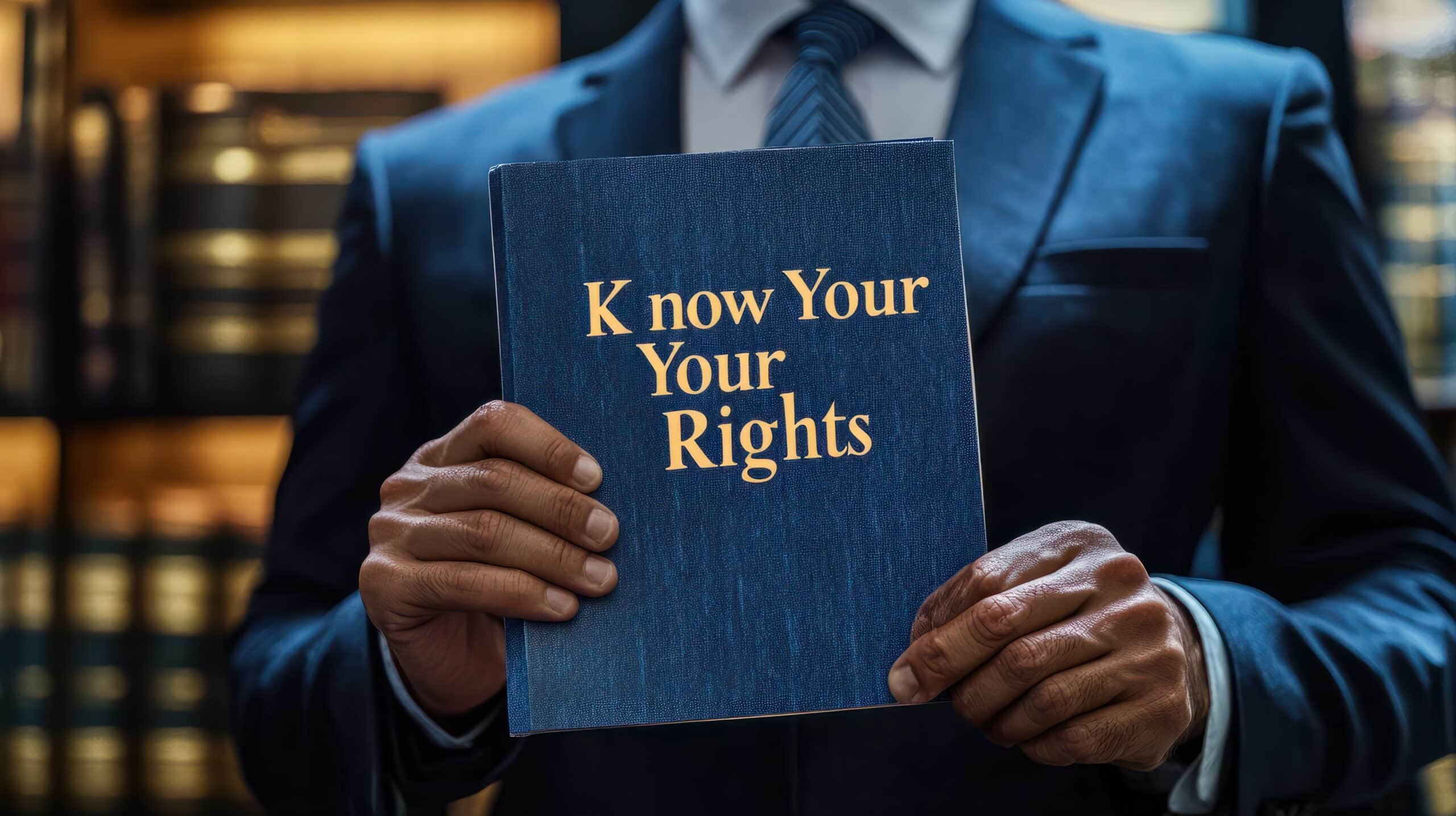The Impact of Mental Health Issues on Criminal Defense in Denver
November 19, 2025

Colorado’s Cannabis DUI Laws: Defending Against Marijuana Impairment Charges
How Surveillance Camera Evidence Can Be Challenged in Colorado Criminal Cases
Posted by: Jacob E. Martinez
Category: Stand Your Ground Laws
Self-defense is one of the most frequently raised arguments in Colorado criminal cases involving assault, homicide, or weapons charges. When a person believes their safety is threatened, the law allows them to use reasonable force to protect themselves. However, the scope of that right depends on the circumstances. While some states have explicit “stand your ground” statutes, Colorado takes a different approach, blending principles of the Castle Doctrine, the state’s “Make My Day” law, and court rulings that have shaped when force may lawfully be used.
For anyone accused of a crime after defending themselves in Denver, CO, understanding these laws is important. Because self-defense claims can determine the outcome of a criminal case, enlist the help of a Colorado self-defense lawyer from Law Office of Jacob Martinez to help you understand how Colorado law views the duty to retreat, when force is considered justified. That way, you will know where the protections of immunity begin and end.
Unlike Florida or Texas, Colorado does not have a statute explicitly labeled as a “stand your ground” law. Instead, the state relies on a combination of its “Make My Day” law and court precedent to outline when a person can legally use force without retreating.
The “Make My Day” law, codified in C.R.S. § 18-1-704.5, applies specifically to situations inside a dwelling. It grants residents the right to use any level of force, including deadly force, against an intruder if the resident reasonably believes the intruder has entered unlawfully and may commit a crime or use force against occupants. Importantly, this law provides immunity from both criminal prosecution and civil lawsuits, making it one of the strongest protections for individuals defending themselves inside their homes.
Stand-your-ground laws, by contrast, usually extend this no-duty-to-retreat principle to public spaces. While Colorado does not have a statute titled “stand your ground,” the Colorado Supreme Court has consistently ruled that individuals in public also have no legal duty to retreat if they are lawfully present and are not the aggressor. In effect, Colorado law blends the protections of the Castle Doctrine with broader judicial recognition of self-defense rights outside the home.
Colorado law gives residents the right to defend themselves against unlawful threats without first attempting to retreat. However, to raise a valid self-defense claim under Colorado law, the individual must reasonably believe that they face one of the following:
In public spaces, Colorado’s stand your ground laws recognize a person’s right to stand their ground. As long as the individual is lawfully present and not the initial aggressor, they are not required to retreat. That said, the use of force must still be reasonable and proportionate to the threat.
For instance, if someone shoves another person during an argument, responding with deadly force would not be legally justified. On the other hand, if that shove occurs near the edge of a rooftop or a moving vehicle where serious injury is likely, the law could recognize a deadly response as reasonable. These determinations vary based on the facts of each case.
Colorado courts consistently stress that self-defense must reflect the level of danger faced. The law expects an individual to use no more force than necessary to stop the threat. For example, using non-lethal force such as restraint or a physical strike may be reasonable in cases of minor assault. In contrast, deadly force is reserved for life-threatening situations such as crimes involving weapons. Suppose you are facing a case involving self-defense. In that case, a Colorado self-defense lawyer can clarify how courts interpret these issues and build a defense around the facts most favorable to you.
Suppose you are faced with criminal charges after defending yourself in Denver, CO. In that case, you need to work with an advocate who understands how Colorado’s Stand Your Ground and Make My Day laws apply in real-world situations. At the Law Office of Jacob Martinez, we can utilize self-defense protection laws to safeguard your rights, freedom, and future. Contact us today at 720-246-6700 for a confidential consultation and receive the legal support necessary to build a robust defense.
Jury Trial - Not Guilty
Jury Trial - Not Guilty
Arapahoe 1st Degree Assault/Vehicular Assault
Jury Trial - Not Guilty
Denver Domestic Violence Assault Case
Jury Trial - Not Guilty
Denver D.V. Assault
Jury Trial - Not Guilty
Denver Careless Driving Resulting in Death
Jury Trial - Not Guilty
Jefferson County Felony Menacing
Jury Trial - Not Guilty
Adams County DUI
Jury Trial - Not Guilty
Jefferson County DUI
Jury Trial - Not Guilty
Jefferson County DUI
Jury Trial - Not Guilty
Jefferson Vehicular Assault/DUI
Jury Trial - Not Guilty
Jefferson County DUI
Jury Trial - Not Guilty
Boulder County DUI case
Jury Trial - Not Guilty
Arapahoe County DUI case
Jury Trial - Not Guilty
Adams County DUI case
Jury Trial - Not Guilty
Douglas County DUI case
Jury Trial - Not Guilty
Gilpin County DUI case
Dismissed
Broomfield County Probation Revocation case
Dismissal
Arapahoe County DUI case
Deferred Judgment
Arapahoe County DUI case
Deferred Judgment
Douglas County DUI case
Deferred Judgment
Larimer County DUI case
Deferred Judgment
Arapahoe County DUI Case
Deferred Judgment
Denver Felony Burglary Case
Deferred Judgment
Arapahoe County DUI case
Dismissed
Arapahoe County Protection Order Case
Dismissed
Golden Destruction of Property case
Dismissed
Jefferson County Protection Order case
Dismissed
Jefferson County Domestic Violence case
Dismissed and Sealed
Jefferson County DUI case
Dismissed
Denver Major Traffic Offense case
Dismissed and Sealed
Broomfield County Domestic Violence case
Dismissed
Summit County DUI Revocation
Dismissed
Denver DUI Revocation
Dismissed
Denver DUI Revocation
Dismissed
Denver DUI +.2 Involving Accident and Injury case
Dismissed
Denver DUI/Habitual Traffic Offender case
DISMISSAL
Denver District Aggravated Theft
Dismissed
Greenwood Village Assault case
Dismissal
Elbert County DUI
Dismissed
Arapahoe County Domestic Violence case
Dismissal
Jefferson County DUI
Dismissal
Denver Municipal Assault
Dismissed
Boulder County Domestic Violence Assault case
Dismissed
Wheat Ridge Assault case
Dismissed
Jefferson County DUI case, with 2+ Prior Convictions
Dismissed
Arapahoe County Domestic Violence case
Dismissed
Broomfield County Domestic Violence case
Dismissed with No Charges Filed
Jefferson County Felony Theft case
Dismissed
Arapahoe County Felony Theft case
Dismissed
Boulder County Felony Theft case


